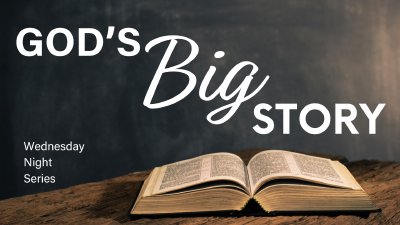Exodus (Exodus 25–Leviticus 4)
Main Point: God fulfilled the promise of a people to Abraham as the nation of Israel grew. The promise of a place has still not come to completion as the children of Israel escape from slavery.
Texts to Consider:
Exodus 1:1–7
What happened to the numbers of the family of Jacob while in Egypt?
Exodus 1:15–22
What is the name of the king of Egypt/Pharaoh?
Exodus 2:23–24
What verbs are used of God and his concern for Israel in this passage?
Exodus 15:7–12
How did Yahweh destroy the Egyptians in the sea?
Exodus 15:23–24, 16:1–3
How do the people respond to such power and deliverance from Yahweh?
Exodus 19:5–6; 34:6–7
Two super important passages that we need to read together while we’re going through Exodus
Exodus 34:34–35
What was going on with Moses’ face?
Summary Statement:






